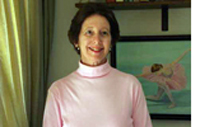Mr. and Mrs. Disraeli: A Strange Romance by Daisy Hay, published by Farrar, Straus & Giroux, 2015
By Sheila Orysiek

SAN DIEGO — Though his name described his heritage, it did not describe Benjamin Disraeli’s belief. The family came from Italy to England where he was born in 1804. His father was a member of a synagogue but was not truly interested in religion and after a dispute with the congregation abandoned all pretense of interest.
There were many handicaps placed upon the Jewish community in England including the inability to serve in the government or sit in the Houses of Parliament, even if one was elected to the position. Employment and opportunities for education were also circumscribed. But, the Disraeli family thought that having no affiliation to any faith was even more of a disability. Thus, at the age of thirteen, Benjamin Disraeli was baptized into the Church of England.
However, though he was never a practicing Jew and was now a baptized Christian, throughout his life he felt the sting of the anti-Semitism which was so deeply ingrained in English society. England had been the first country to officially expel it’s Jewish population in 1290 CE. Despite this, Disraeli was a successful novelist, a spectacularly successful Member of the House of Commons, twice elected Prime Minister, eventually was given the title Lord Beaconsfield and a great favorite of Queen Victoria.
At the age of 35, Disraeli heavily in debt and desperate to avoid debtor’s prison, married a rich widow, Mary Anne, who was twelve years his senior. She was aware of his motivation and yet, she still married him. They were both, individually and together, the butt of many jokes, sneers and derision. It did not help that they dressed eccentrically, often displayed manners and mannerisms disdained by upper class society and generally did not “fit in.”
Slowly over the years, Disraeli’s genius for politics and his intense intelligence brought him to the highest reaches of government and royal favor. Mary Anne went from being a widow married for her fortune and derided by society as a non-entity, to a beloved public figure and deeply loved by her husband.
Hay brings to life not only this romance in reverse, moving from the practical need for money to a true affair of the heart, but also the context in which it occurred.
*
Orysiek is a freelance writer who specializes in arts and literature. Comments may be made to the author at sheila.orysiek@sdjewishworld.com, or posted on this website provided that the rules below are observed.
__________________________________________________________________
Care to comment? We require the following information on any letter for publication: 1) Your full name 2) Your city and state (or country) of residence. Letters lacking such information will be automatically deleted. San Diego Jewish World is intended as a forum for the entire Jewish community, whatever your political leanings. Letters may be posted below provided they are responsive to the article that prompted them, and civil in their tone. Ad hominem attacks against any religion, country, gender, race, sexual orientation, or physical disability will not be considered for publication. There is a limit of one letter per writer on any given day.
__________________________________________________________________